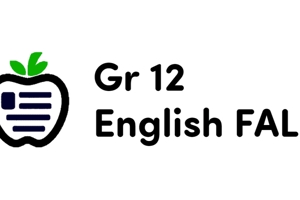Podcast
Questions and Answers
Co rozumie się przez koniugację w języku polskim?
Co rozumie się przez koniugację w języku polskim?
- Proces zmiany formy czasownika zgodnie z jego aspektem, nastrojem, liczbą, itd. (correct)
- Zmianę struktury zdania
- Proces tworzenia zdań pytających
- Proces odmiany rzeczownika w zdaniu
Który z poniższych aspektów nie jest uwzględniony w koniugacji czasownika?
Który z poniższych aspektów nie jest uwzględniony w koniugacji czasownika?
- Czas
- Nastroj
- Aspekt
- Rodzaj (correct)
Który czasownik nie zmienia formy w liczbie mnogiej w języku angielskim?
Który czasownik nie zmienia formy w liczbie mnogiej w języku angielskim?
- Think (correct)
- Go
- Walk
- Eat
Co oznacza 'czas teraźniejszy' w kontekście czasowników?
Co oznacza 'czas teraźniejszy' w kontekście czasowników?
Który nastroj w języku angielskim wyraża wątpliwości lub warunkowe zdania?
Który nastroj w języku angielskim wyraża wątpliwości lub warunkowe zdania?
Co oznacza 'czas futurum' w gramatyce języka angielskiego?
Co oznacza 'czas futurum' w gramatyce języka angielskiego?
Flashcards are hidden until you start studying
Study Notes
Verbs are action words that express what a subject is doing or being. They can also indicate states of being, feeling, and experiencing or mental actions like thinking and perceiving. In English grammar, verbs are used with subjects and objects to express actions and relationships between different parts of a sentence.
Conjugation
Conjugation refers to the inflectional process by which a verb changes form according to its tense, mood, voice, aspect, person, number, or other grammatical category. Different languages have unique rules for verb conjugations based on their linguistic structure, but in general, they follow specific patterns to communicate tense and meaning accurately.
In English grammar, there are several key aspects of verb conjugation:
-
Tense: Tenses refer to when something happens or occurred relative to the present moment. English has four main tenses for regular verbs: simple present, simple past, present perfect, and past perfect. For example, "I walk," "I walked," "I have walked," and "I had walked."
-
Mood: Moods in English grammar generally relate to whether statements are indicative (expressing a truth), interrogative (asking questions), imperative (making commands), exclamatory (expressing strong emotion), or subjunctive (expressed doubt, hypotheticals, or unreal conditions).
-
Voice: Voice indicates whether the subject receives the action or performs it. In English grammar, there are active and passive voices. Active voice emphasizes the performer (subject) of the action, while passive voice highlights the action and who or what undergoes it.
-
Aspect: Aspect in English relates to whether actions are viewed as completed (completive), ongoing (progressive), or neither (neutral).
-
Person: In English grammar, verbs change according to the speaker's role in relation to the action described: first person, second person, third person singular, third person plural, or otherwise.
Understanding verb conjugation helps speakers navigate the nuances of language and accurately convey their intended meaning. Verbs play a crucial role not just in expressing tractions but also in creating coherent sentences and effective communication overall.
Studying That Suits You
Use AI to generate personalized quizzes and flashcards to suit your learning preferences.




